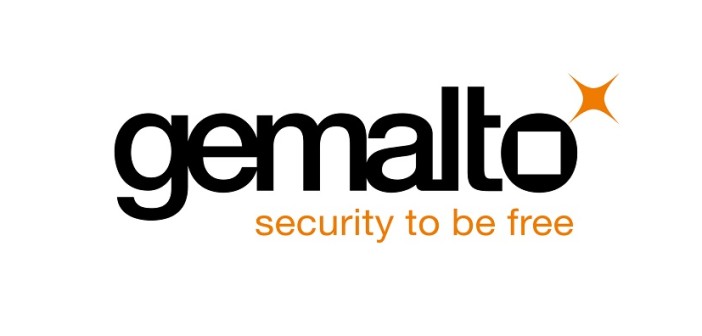
Use of blockchain technology to help secure IoT data, services and devices doubles in a year
Gemalto has revealed that only around half (48%) of businesses can detect if any of their IoT devices suffers a breach. This comes despite companies having an increased focus on IoT security:
- Spending on protection has grown (from 11% of IoT budget in 2017 to 13% now);
- Nearly all (90%) believing it is a big consideration for customers; and
- Almost three times as many now see IoT security as an ethical responsibility (14%), compared to a year ago (4%).
With the number of connected devices set to top 20 billion by 2023, businesses must act quickly to ensure their IoT breach detection is as effective as possible.
Surveying 950 IT and business decision makers globally, Gemalto found that companies are calling on governments to intervene, with 79% asking for more robust guidelines on IoT security, and 59% seeking clarification on who is responsible for protecting IoT. Despite the fact that many governments have already enacted or announced the introduction of regulations specific to IoT security, most (95%) businesses believe there should be uniform regulations in place, a finding that is echoed by consumers[1] 95% expect IoT devices to be governed by security regulations.
“Given the increase in the number of IoT-enabled devices, it’s extremely worrying to see that businesses still can’t detect if they have been breached,” said Jason Hart, CTO, Data Protection at Gemalto. “With no consistent regulation guiding the industry, it’s no surprise the threats – and, in turn, vulnerability of businesses – are increasing. This will only continue unless governments step in now to help industry avoid losing control.”
Security remains a big challenge
With such a big task in hand, businesses are calling for governmental intervention because of the challenges they see in securing connected devices and IoT services. This is particularly mentioned for data privacy (38%) and the collection of large amounts of data (34%). Protecting an increasing amount of data is proving an issue, with only three in five (59%) of those using IoT and spending on IoT security, admitting they encrypt all of their data.
Consumers1 are clearly not impressed with the efforts of the IoT industry, with 62% believing security needs to improve. When it comes to the biggest areas of concern 54% fear a lack of privacy because of connected devices, followed closely by unauthorised parties like hackers controlling devices (51%) and lack of control over personal data (50%).
Blockchain gains pace as an IoT security tool
While the industry awaits regulation, it is seeking ways to address the issues itself, with blockchain emerging as a potential technology; adoption of blockchain has doubled from 9% to 19% in the last 12 months. What’s more, a quarter (23%) of respondents believe that blockchain technology would be an ideal solution to use for securing IoT devices, with 91% of organisations that don’t currently use the technology are likely to consider it in the future.
As blockchain technology finds its place in securing IoT devices, businesses continue to employ other methods to protect themselves against cybercriminals. The majority (71%) encrypt their data, while password protection (66%) and two factor authentication (38%) remain prominent.
Hart continues, “Businesses are clearly feeling the pressure of protecting the growing amount of data they collect and store. But while it’s positive they are attempting to address that by investing in more security, such as blockchain, they need direct guidance to ensure they’re not leaving themselves exposed. In order to get this, businesses need to be putting more pressure on the government to act, as it is them that will be hit if they suffer a breach.”
Additional Resources
- Visit the State of IoT Security website
- Attend the Global Trends in IoT Security: 2019 and Beyond webinar on February 8, 2019 at 6:00AM AEDT
- Learn more about Gemalto’s IoT data security solutions
- Download the IoT Security – Key ingredients for success Whitepaper
- Visit the Gemalto dedicated IoT Security microsite
- Download Gemalto’s ‘Connected Living’ Report
- Directive on Security of Network and Information Systems EU ePrivacy Regulation that will come into effect in 2019
About Gemalto
Gemalto (Euronext NL0000400653 GTO) is the global leader in digital security, with 2017 annual revenues of €3 billion and customers in over 180 countries. We bring trust to an increasingly connected world.
From secure software to biometrics and encryption, our technologies and services enable businesses and governments to authenticate identities and protect data so they stay safe and enable services in personal devices, connected objects, the cloud and in between.
Gemalto’s solutions are at the heart of modern life, from payment to enterprise security and the internet of things. We authenticate people, transactions and objects, encrypt data and create value for software – enabling our clients to deliver secure digital services for billions of individuals and things.
Our 15,000 employees operate out of 114 offices, 40 personalization and data centers, and 35 research and software development centers located in 47 countries.
For more information visit www.gemalto.com, or follow @gemalto on Twitter.
[1] Gemalto Connected Living in 2030 Report





